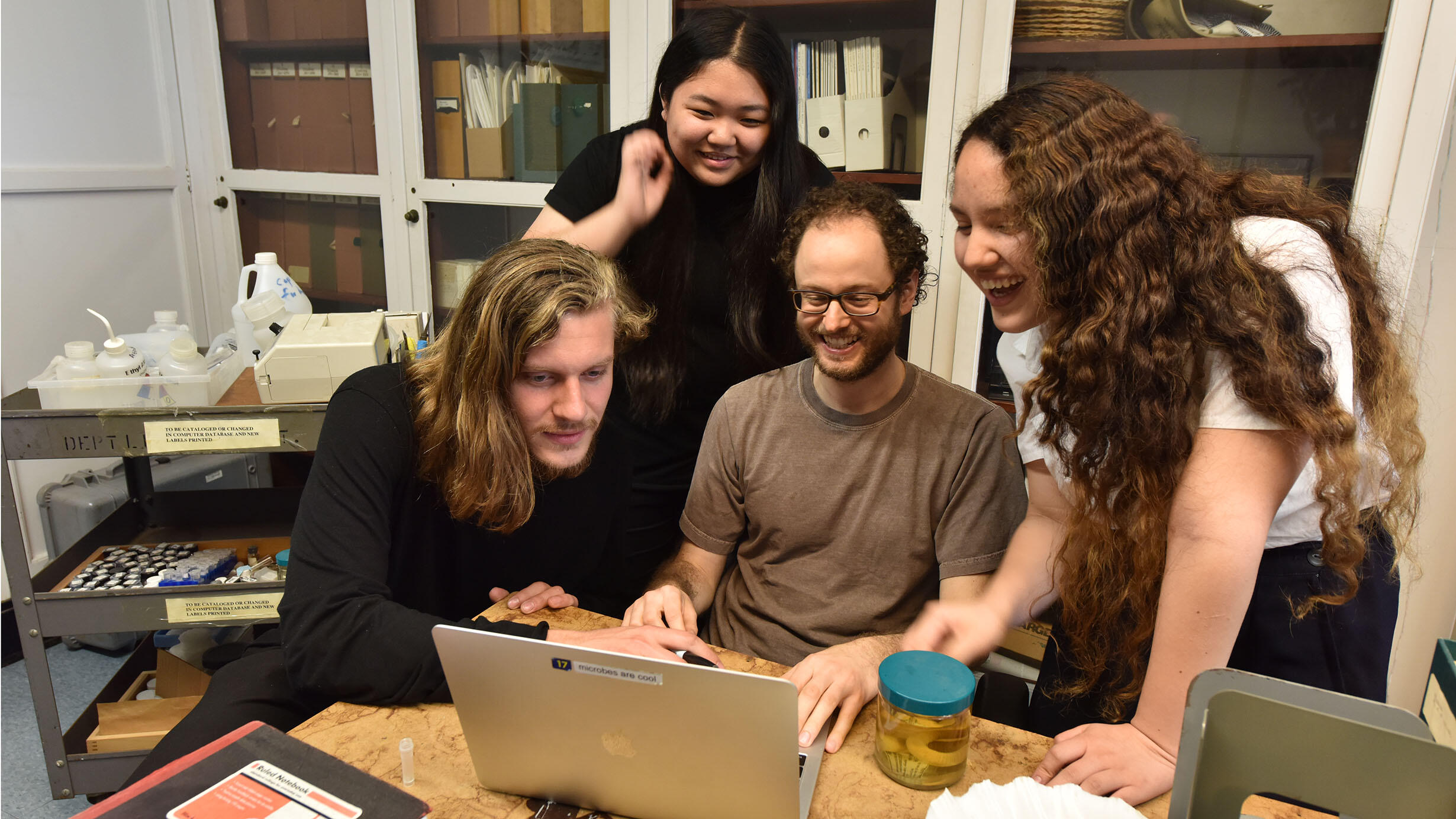Science Research Mentoring Program
Part of Teens
Support for the Science Research Mentoring Program at the American Museum of Natural History is provided by Christopher C. Davis; The Shelby Cullom Davis Charitable Fund; The Pinkerton Foundation; and the Adolph and Ruth Schnurmacher Foundation.
The Museum’s Education Collection is generously supported by the Anna-Maria and Stephen Kellen Foundation.
 Denis Finnin/© AMNH
Denis Finnin/© AMNH